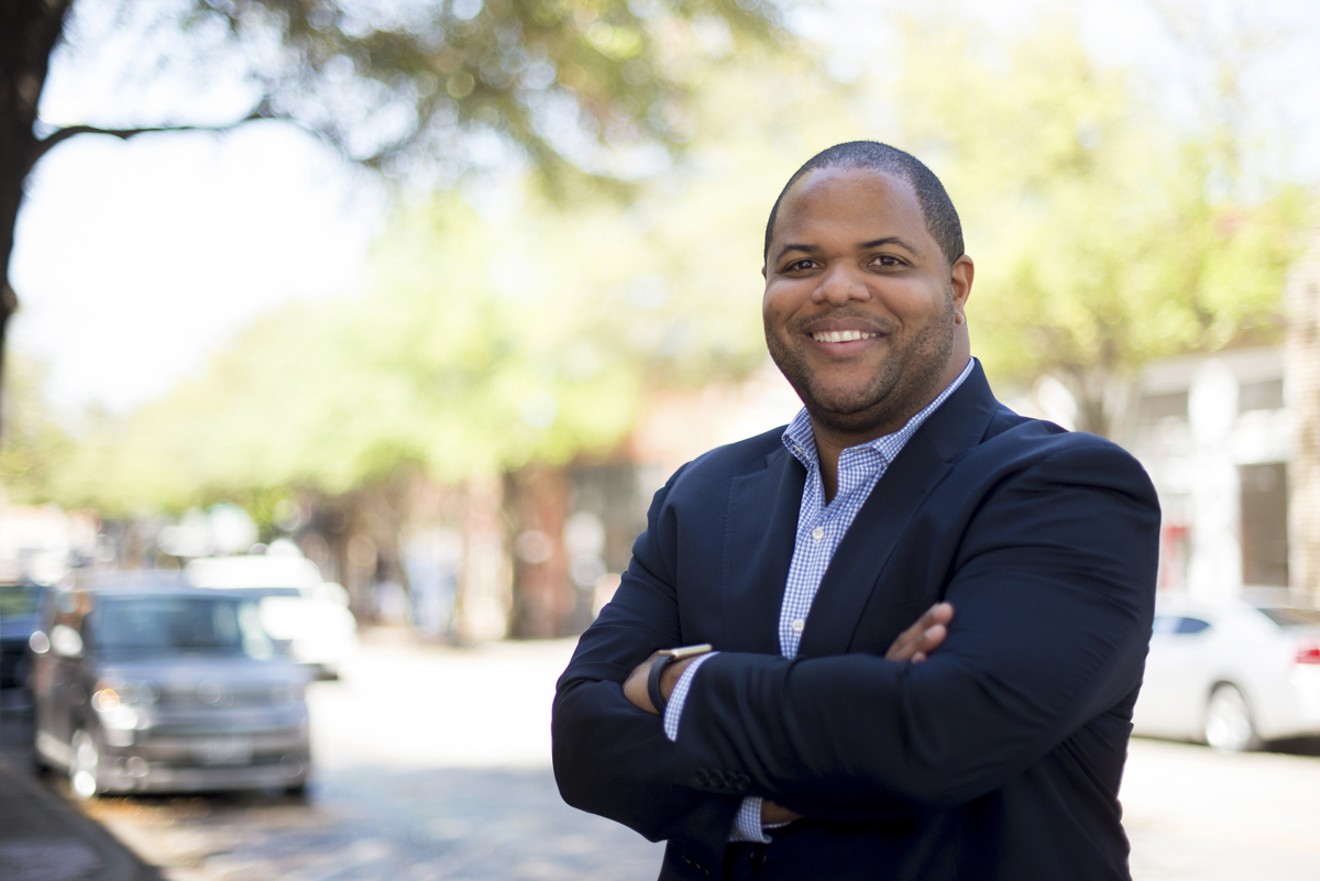Johnson is a serious candidate — even if his announcement spurred a series of jokes on Twitter about the size of the field — with a strong history in the Legislature and a penchant for creative problem-solving, especially when it comes to affordable housing, one of the biggest issues facing Dallas.
In a city that usually has 4% voter turnout for local elections, this year it looks like 4% of the residents are running for mayor https://t.co/dozUAwlANX
— Bud Kennedy / #ReadLocal (@BudKennedy) January 22, 2019
He isn't the only one in the field, though. Voters who show up at Dallas polls in May are going to have a plethora of qualified choices to pick from, a stark departure from the city's last mayoral election four years ago, when Dallas attorney Marcos Ronquillo ended up being the only challenger to incumbent Mike Rawlings.
We'll learn more about the wide-open field as we inch closer to election day and the candidates begin to interact with one another. In the meantime, it's probably easiest to evaluate the race in terms of the lanes in which the candidates have either positioned themselves in or been positioned in, starting with a group we'll call the "neighborhooders."

Dallas City Council member Scott Griggs backed a plan in the Legislature to create a public safety authority that might have helped solve pension and pay issues with the city's first responders.
Mark Graham
Neighborhooders (Scott Griggs and Eric Johnson)
Griggs and Johnson share a couple of things that are likely to help them out, especially as long as the race remains a big-field, jungle primary. They both have relatively high name recognition considering the election's inevitably low turnout and have consistently fought for their previously underrepresented neighborhoods in Oak Cliff (Griggs) and West and South Dallas (Johnson). Both have pushed creative ideas for solving Dallas' affordable-housing crisis, and both are the fathers of young kids. They bring constituencies with them into the race, never a bad thing when one's seeking to get through a big primary into a runoff.
Separating the two candidates are Griggs' experience working in Dallas' byzantine city government and Johnson's apparent decision to continue his work as a state representative during what will be a full-time mayoral campaign for the other candidates in the race. Since first running for the Texas House in 2010, Johnson has shown he can raise money. But most of his opponents are capable fundraisers as well. Serving in Austin during its truncated, high-pressure legislative session and running in Dallas this spring will be some trick.
Establishmentarians (Mike Ablon, Albert Black, Lynn McBee and Regina Montoya)
Ablon, Black, McBee and Montoya — a developer, businessman, high-dollar charitable fundraiser and former aide in the Bill Clinton administration, respectively — are raising money in $1,000, $2,000 and $5,000 chunks from the Dallas business community, building up campaign war chests to sustain them until May. They are following the path blazed by Mike Rawlings and Tom Leppert before them, earning the favor of the business community by appearing less threatening to that community's interests than their opponents in the race do.
To gain traction in the race, Ablon will have to overcome his role in the plan to turn the proposed park between the Trinity River levees into what the Observer's Jim Schutze has called "Six Flags for rich people," and McBee will have to figure out a really good explanation for why she deserves to be Dallas' mayor after living in Highland Park for decades. Black and Montoya will need to raise their profiles, period, to have any hope of getting enough votes to sneak into a runoff.
The Wild Cards (Miguel Solis and Jason Villalba)
Solis and Villalba are wild cards for a variety of reasons. Solis, a longtime Dallas ISD school board member, has experience in local politics — although, notably, not in city of Dallas politics — and a progressive reputation, thanks to his campaigning for Beto O'Rourke and others. Solis is probably best known, however, for supporting former Dallas ISD Superintendent Mike Miles' school reform proposals.
In some areas of Dallas — specifically southern Dallas — those reforms, which included tying teacher pay to student performance, were deeply unpopular. Solis will have to give voters who opposed Miles a reason to vote for him.
Villalba, a former state representative, is a Republican in a deep blue city. He has a puncher's chance, however, because he has repeatedly railed against President Donald Trump — going so far as to call for his impeachment — and has a better record on LGBTQ rights than many of his fellow Republicans. If the North Dallas moderates who previously elected Villalba in Texas House District 114 turn out in even medium-sized numbers, he'll be in the runoff-chasing pack.
The Dead Enders (Alyson Kennedy and Miguel Patino)
It wouldn't be a Dallas mayor's race without a couple of sacrificial lambs on the ballot. This year's no-hopers are Alyson Kennedy, 2016 presidential candidate for the Socialist Workers Party — she didn't make the ballot in Texas — and Miguel Patino, who has filed paperwork with the city to get on the ballot but hasn't made a formal campaign announcement and has no online campaign presence.
Kennedy's got some interesting ideas, but Dallas has a ways to go before it becomes that kind of red city.
*For the love of God, it'd better be set. Ten is enough. No more surprise candidates, please.












